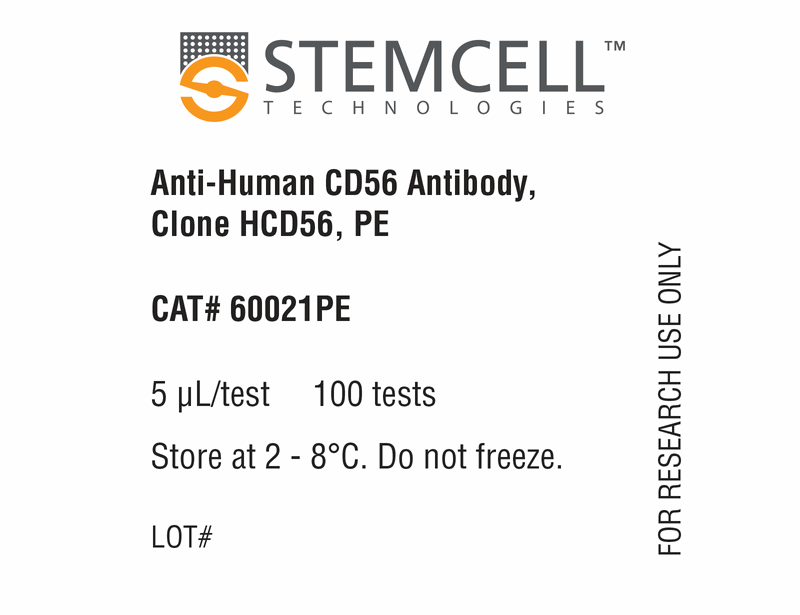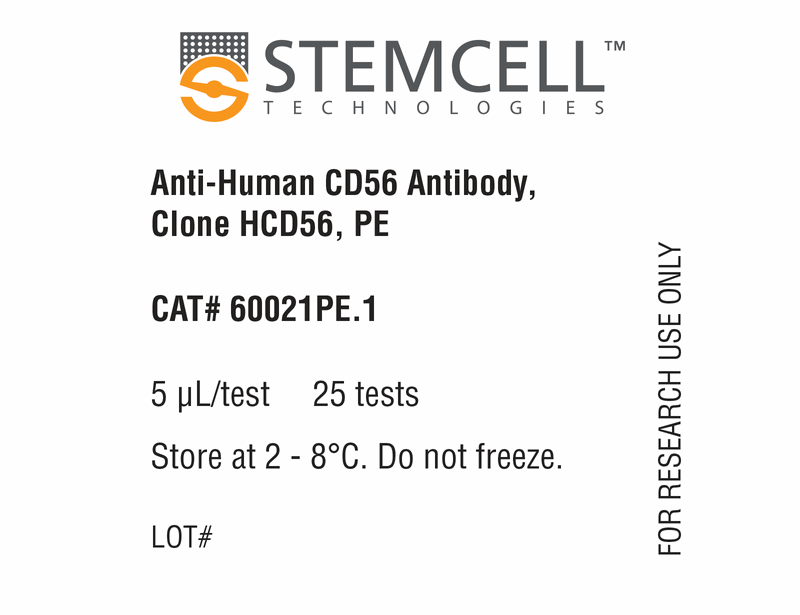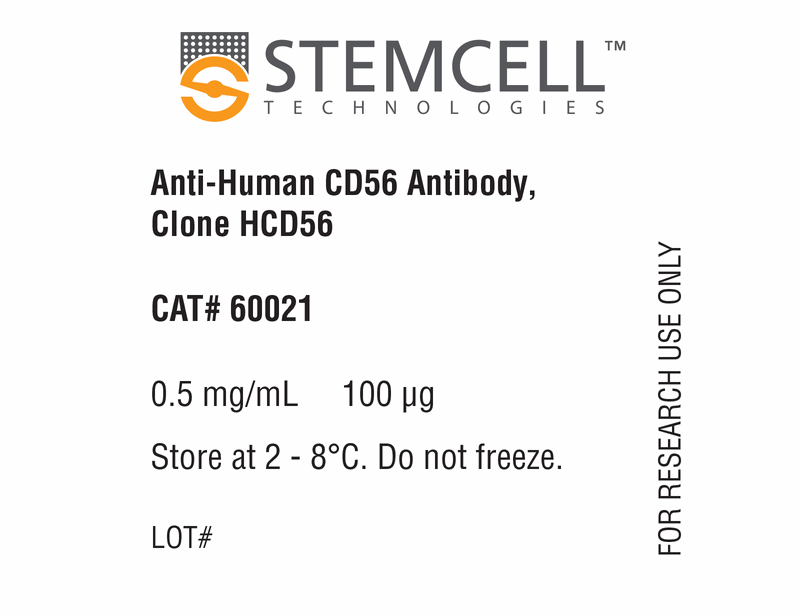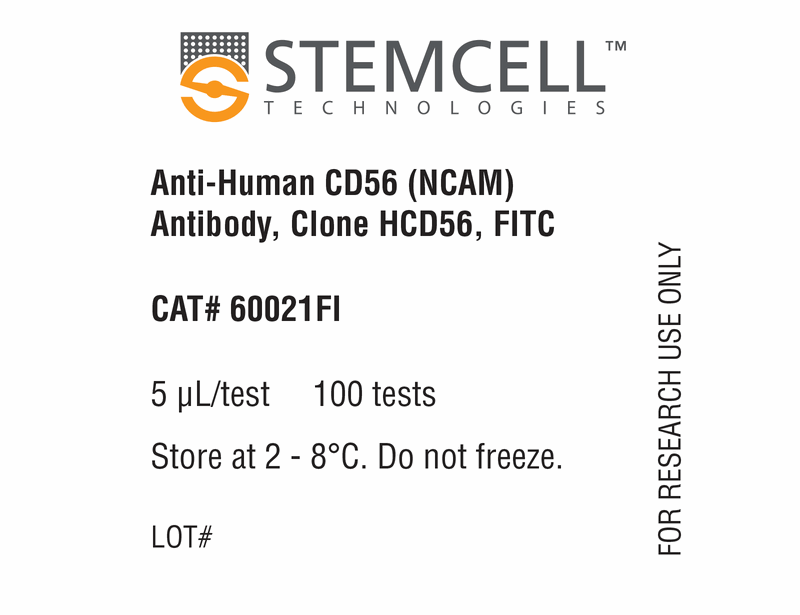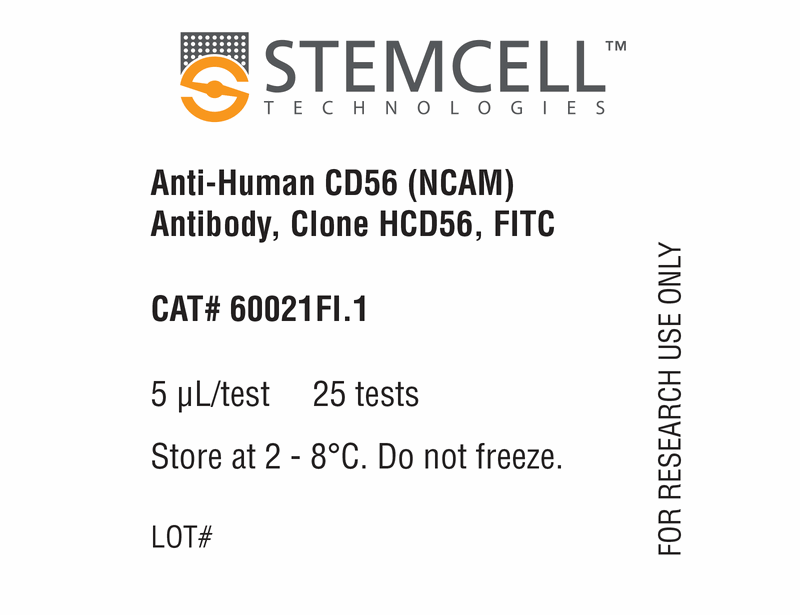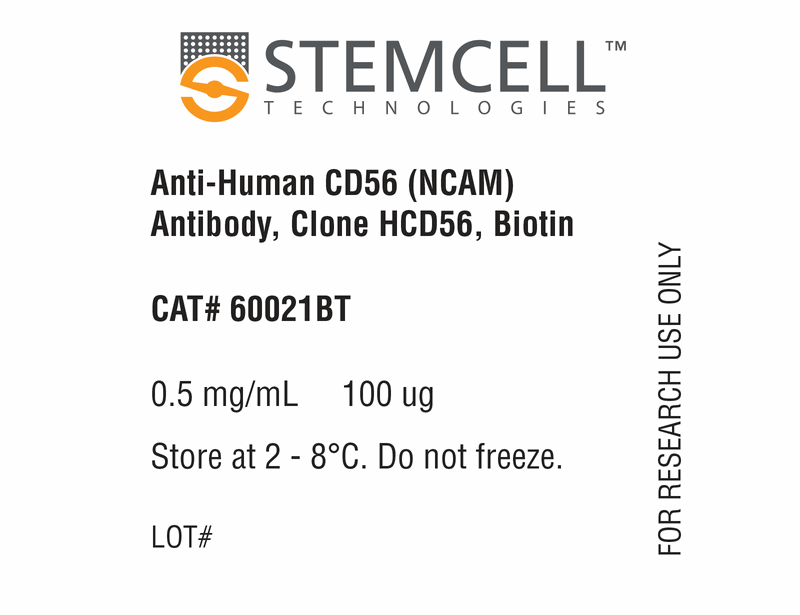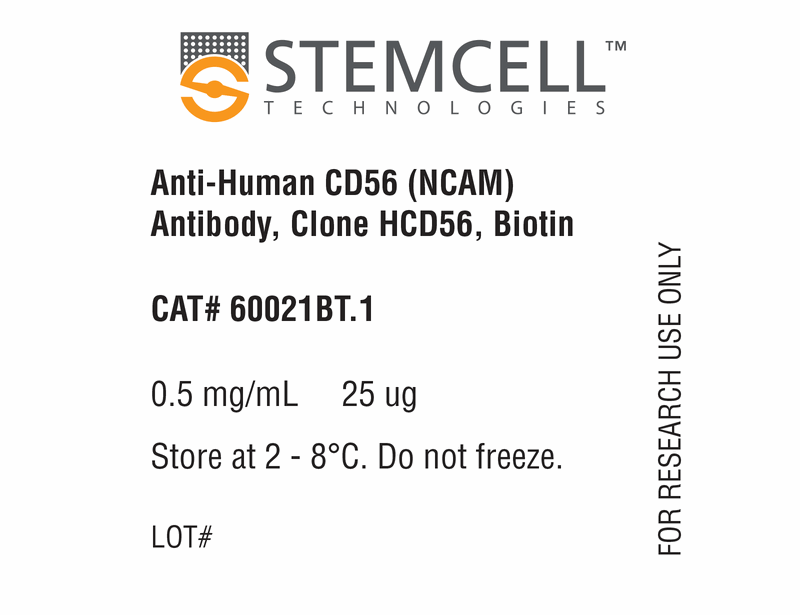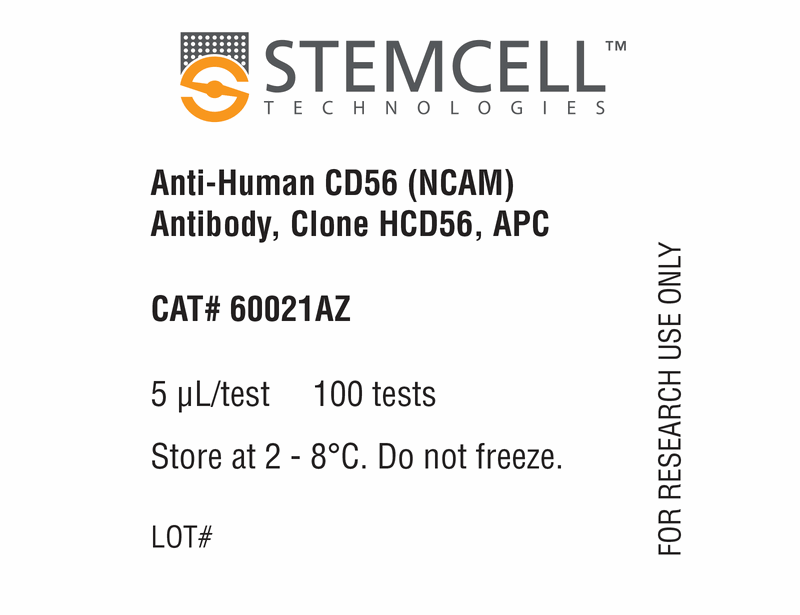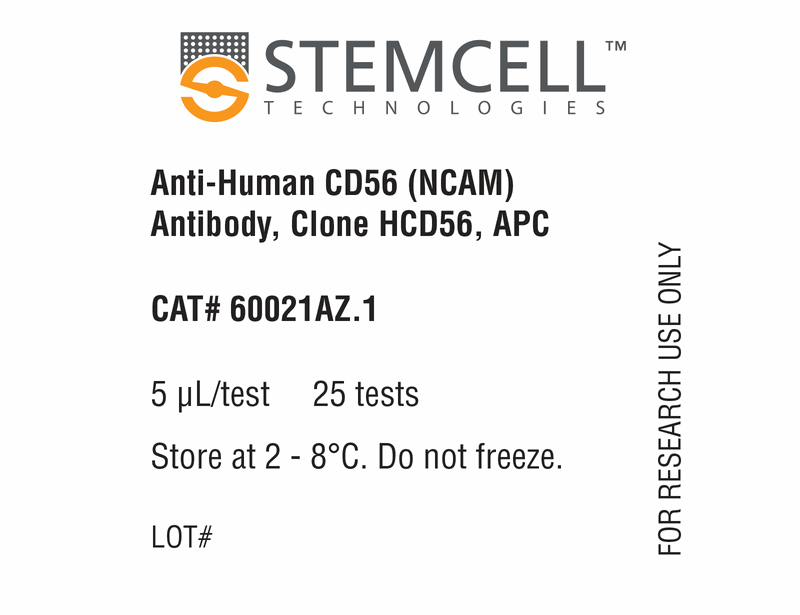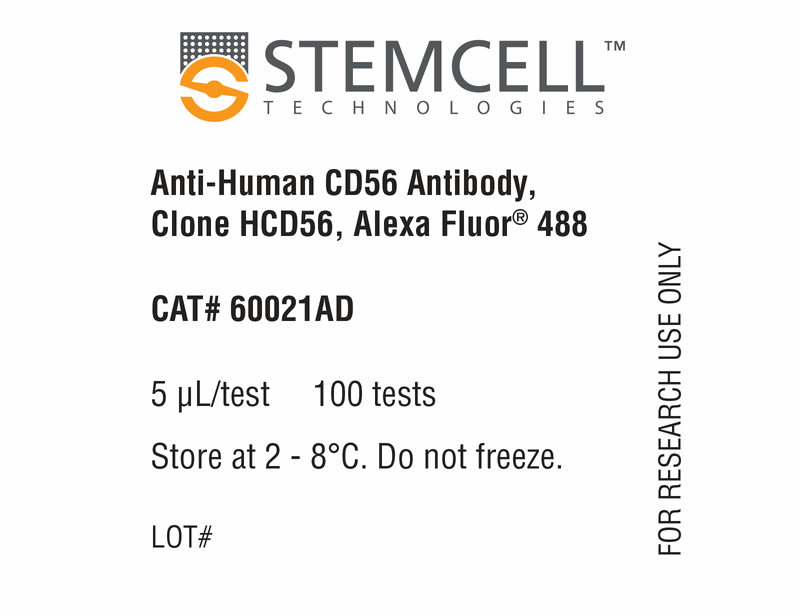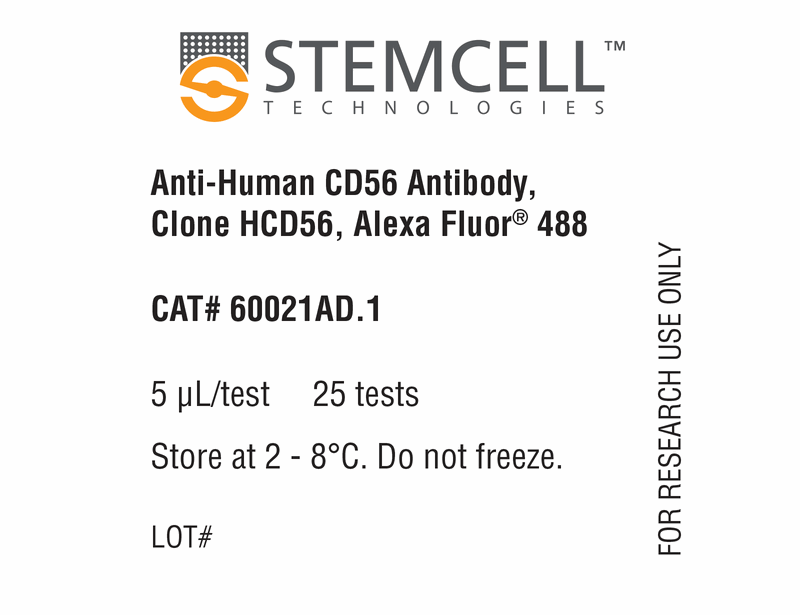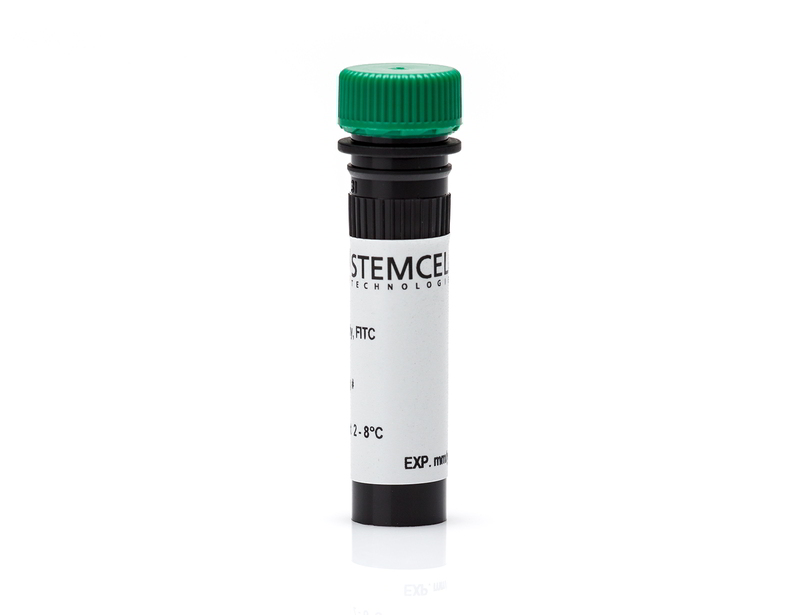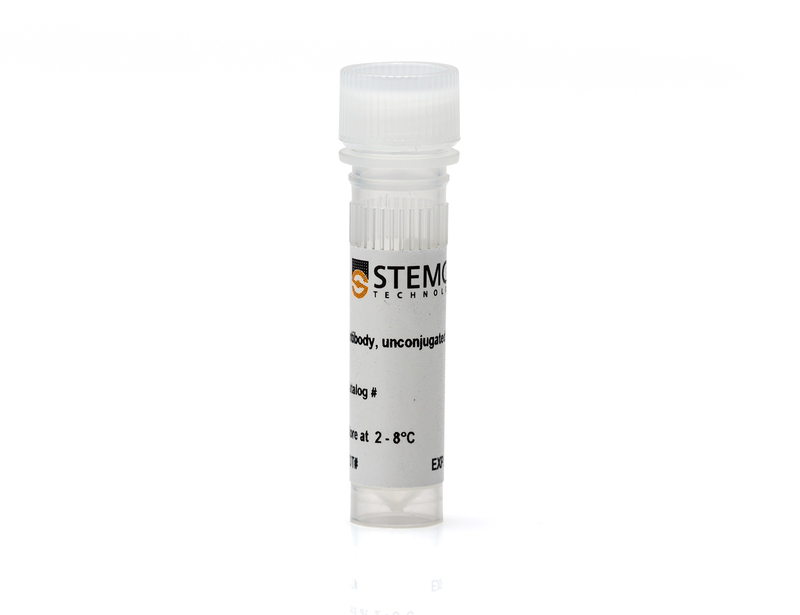概要
This antibody clone has been verified for purity assessments of cells isolated with EasySep™ kits, including EasySep™ HLA Buffy Coat CD56 Positive Selection Kit (Catalog #18085HLA) and EasySep™ Human CD56 Positive Selection Kit (Catalog #18055); partial blocking may be observed, as well as EasySep™ HLA CD2 Positive Selection Kit (Catalog #18657HLA) and EasySep™ Human NK Cell Enrichment Kit (Catalog #19055).
技术资料
数据及文献
Data
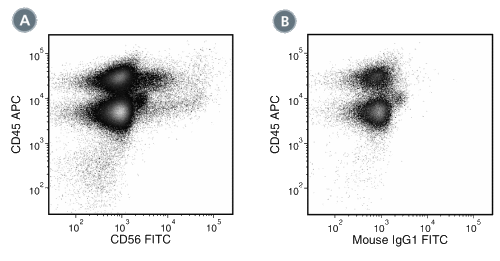
Figure 1. Data for Unconjugated
(A) Flow cytometry analysis of human buffy coat nucleated cells labeled with Anti-Human CD56 Antibody, Clone HCD56, followed by Goat Anti-Mouse IgG (H+L) Antibody, Polyclonal, FITC (Catalog #60138FI) and Anti-Human CD45 Antibody, Clone HI30, APC (Catalog #60018AZ). (B) Flow cytometry analysis of human buffy coat nucleated cells labeled with a mouse IgG1, kappa isotype control antibody, followed by Goat Anti-Mouse IgG (H+L) Antibody, Polyclonal, FITC and Anti-Human CD45 Antibody, Clone HI30, APC.
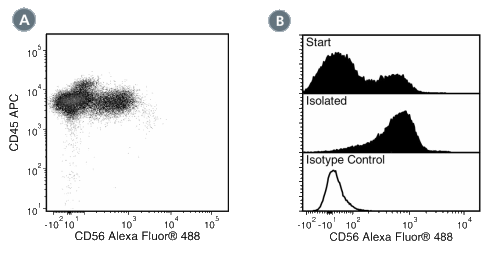
Figure 2. Data for Alexa Fluor® 488-Conjugated
(A) Flow cytometry analysis of human peripheral blood mononuclear cells (PBMCs) labeled with Anti-Human CD56 Antibody, Clone HCD56, Alexa Fluor® and Anti-Human CD45 Antibody, Clone HI30, APC (Catalog #60018AZ). (B) Flow cytometry analysis of human PBMCs processed with the EasySep™ Human CD56 Positive Selection Kit and labeled with Anti-Human CD56 Clone HCD56, Alexa Fluor® 488. Histograms show labeling of PBMCs (Start) and isolated cells (Isolated). Labeling of start cells with a mouse IgG1, kappa Alexa Fluor® 488 isotype control antibody is shown (solid line histogram).
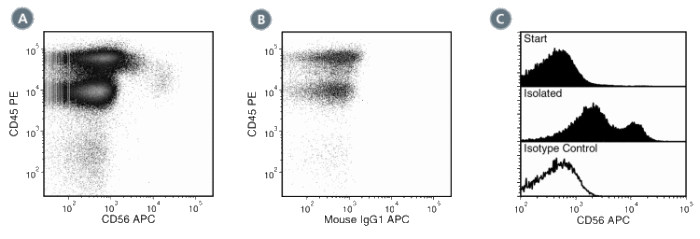
Figure 3. Data for APC-Conjugated
(A) Flow cytometry analysis of human buffy coat nucleated cells labeled with Anti-Human CD56 Antibody, Clone HCD56, APC and Anti-Human CD45 Antibody, Clone HI30, PE (Catalog #60018PE). (B) Flow cytometry analysis of human buffy coat nucleated cells labeled with a mouse IgG1, kappa APC isotype control antibody and Anti-Human CD45 Antibody, Clone HI30, PE. (C) Flow cytometry analysis of human buffy coat nucleated cells processed with the EasySep™ HLA Buffy Coat CD56 Positive Selection Kit and labeled with Anti-Human CD56 Antibody, Clone HCD56, APC. Histograms show labeling of buffy coat nucleated cells (Start) and isolated cells (Isolated). Labeling of start cells with a mouse IgG1, kappa APC isotype control antibody is shown (solid line histogram).
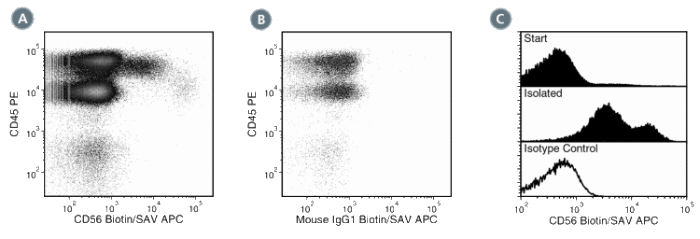
Figure 4. Data for Biotin-Conjugated
(A) Flow cytometry analysis of human buffy coat nucleated cells labeled with Anti-Human CD56 Antibody, Clone HCD56, Biotin, followed by streptavidin (SAV) APC and Anti-Human CD45 Antibody, Clone HI30, PE (Catalog #60018PE). (B) Flow cytometry analysis of human buffy coat nucleated cells labeled with a mouse IgG1, kappa biotin isotype control antibody, followed by SAV APC and Anti-Human CD45 Antibody, Clone HI30, PE. (C) Flow cytometry analysis of human buffy coat nucleated cells processed with the EasySep™ HLA Buffy Coat CD56 Positive Selection Kit and labeled with Anti-Human CD56 Antibody, Clone HCD56, Biotin followed by SAV APC. Histograms show labeling of buffy coat nucleated cells (Start) and isolated cells (Isolated). Labeling of start cells with a mouse IgG1, kappa biotin isotype control antibody, followed by SAV APC is shown (solid line histogram).
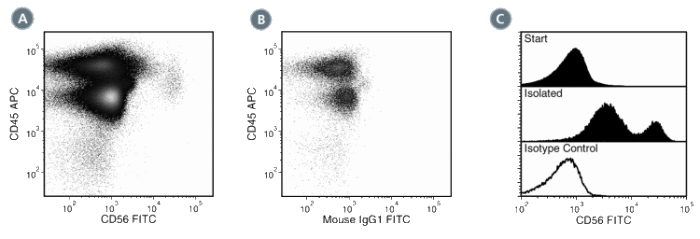
Figure 5. Data for FITC-Conjugated
(A) Flow cytometry analysis of human buffy coat nucleated cells labeled with Anti-Human CD56 Antibody, Clone HCD56, FITC and Anti-Human CD45 Antibody, Clone HI30, APC (Catalog #60018AZ). (B) Flow cytometry analysis of human buffy coat nucleated cells labeled with a mouse IgG1, kappa FITC isotype control antibody and Anti-Human CD45 Antibody, Clone HI30, APC. (C) Flow cytometry analysis of human buffy coat nucleated cells processed with the EasySep™ HLA Buffy Coat CD56 Positive Selection Kit and labeled with Anti-Human CD56 Antibody, Clone HCD56, FITC. Histograms show labeling of buffy coat nucleated cells (Start) and isolated cells (Isolated). Labeling of start cells with a mouse IgG1, kappa FITC isotype control antibody is shown (solid line histogram).
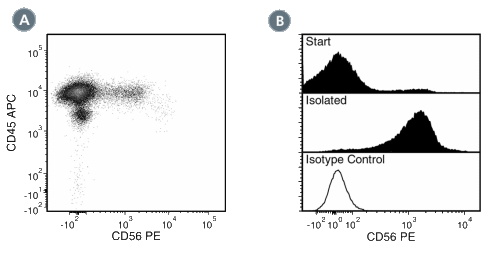
Figure 6. Data for PE-Conjugated
(A) Flow cytometry analysis of human peripheral blood mononuclear cells (PBMCs) labeled with Anti-Human CD56 Antibody, Clone HCD56, PE and Anti-Human CD45 Antibody, Clone HI30, APC (Catalog #60018AZ). (B) Flow cytometry analysis of human PBMCs processed with the EasySep™ Human CD56 Positive Selection Kit and labeled with Anti-Human CD56 Antibody, Clone HCD56, PE. Histograms show labeling of PBMCs (Start) and isolated cells (Isolated). Labeling of start cells with a mouse IgG1, kappa PE isotype control antibody is shown (solid line histogram).

 网站首页
网站首页
